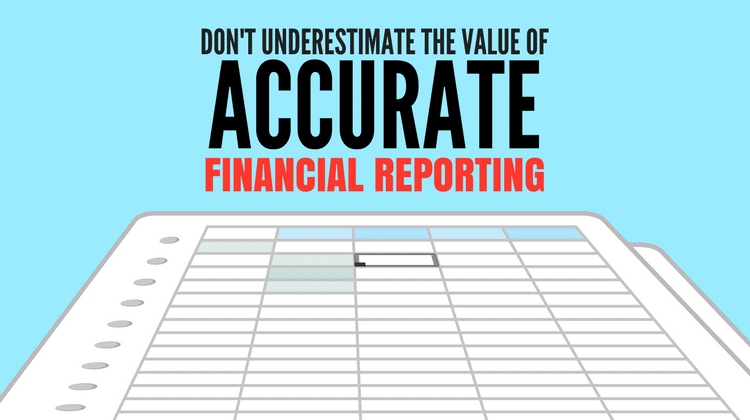
If a business ever needs a loan, line, lease, partner, or an investor, financial statements will be requested (in addition to a pull of their business and/or personal credit scores and history). This information is used to determine risk and whether the business has enough resources available to manage and pay back a loan.
Here’s the problem: most small business owners have never stepped foot into a business accounting class. Some may not even recognize the importance of accurate financial reporting.
Financial Management Leads to Better Opportunities
Businesses should always be prepared with three major financial statements:
- Balance sheet: Includes a snapshot of assets, liabilities, and net worth of the organization as of the date reported.
- Income statement: Includes revenue, expenses, and profits/losses that occurred during the reporting period.
- Cash flow statement: Reports the inflow and outflow of cash within the company during the reporting period. This statement shows whether or not a company has enough cash to manage expenses and purchase new assets.
Spend the Extra Money & Hire a Good Bookkeeper
Financial statements are vital for providing information about the company’s overall health. In order to make financial reporting easier, bookkeeping should be managed on a day-to-day basis.
Accounting can be overwhelming and confusing for business owners though. For this reason, many business owners hire an internal accounting expert or outside provider to manage their bookkeeping and financial statements.
Vet Your Bookkeeper Thoroughly
It’s important that whoever you hire is reliable; poorly managed bookkeeping can cause payment and financial reporting errors. If payments are not managed properly, it can result in delinquent information on business credit reports. Also, if financial statements are inaccurate, access to loans as well as the financial reputation of the business can be put on the line.
For instance, one of our clients is a real estate investor. They were troubled because investors were backing out on properties, and the bricks that made up their once successful business were beginning to crumble. We learned that a recently-fired bookkeeper had fallen behind on creditor payments and their risk potential had shot through the roof on all three business credit reports. Investors often review business credit reports in order to weigh the risk of investing their personal funds; since their risk had increased so dramatically over a short period of time, investors had pulled their money out.
If your bookkeeper falls behind on managing the bills and ends up paying creditors and vendors late (or not at all), your business credit will reflect negative information. Businesses who experience an issue like this may have trouble finding investors, vendors, or creditors. They also may end up losing payment terms with existing vendors or even dissolve the relationship entirely — all because of their poor payment habits.
Financial Statements Can Help a Business Understand Their Future Needs
Often, businesses need credit as a part of their strategy to remain financially stable. By analyzing financial statements, business owners can pinpoint the time of year that receivables are slow to collect or when business slows in general.
This is also the time of year where lines or loans will be of great value. Many companies use factoring or business credit cards to support these challenging seasons, but this can be very costly due to higher pricing and rates.
Business owners with excellent business credit and strong financial reporting may very well qualify for a traditional loan or line with a mainstream bank. This could help companies weather that slow period by increasing available cash flow and helping to increase profits.
A Picture is Worth a Thousand Words
Remember, your balance sheet is like a “snapshot” of your company’s net worth. Luckily, as a business owner, you likely have control over who sees your balance sheet. Your business credit reports are also a “snapshot”, but they reflect your stability and risk of default. They can be purchased by anyone at any time, with or without your knowledge and consent. This means that investors, partners, creditors, executive talent, and even competitors can gain insight on your business’ payment habits without seeing financial statements.
Further, your chances of maintaining and obtaining a successful investor or partnership will also be impacted by the state of your credit and financial reporting. It’s likely that an investor will not even consider your company if you do not have the proper documentation and cannot reflect positive payment habits.
Therefore, business owners should keep their eyes on the future of their organizations by managing their finances. Accurate and up-to-date financial statements, timely payments, and well-managed business credit reports are crucial to building your company’s reputation and leaving the door open for affordable loans, lines, and leases.
About the Author
Tracy Becker is the founder and President of North Shore Advisory Inc., in Elmsford, New York. She is a FICO Certified Professional credit expert and has been featured in The New York Times, NASDAQ, and NerdWallet. Follow Tracy on Twitter @TracyBecker.